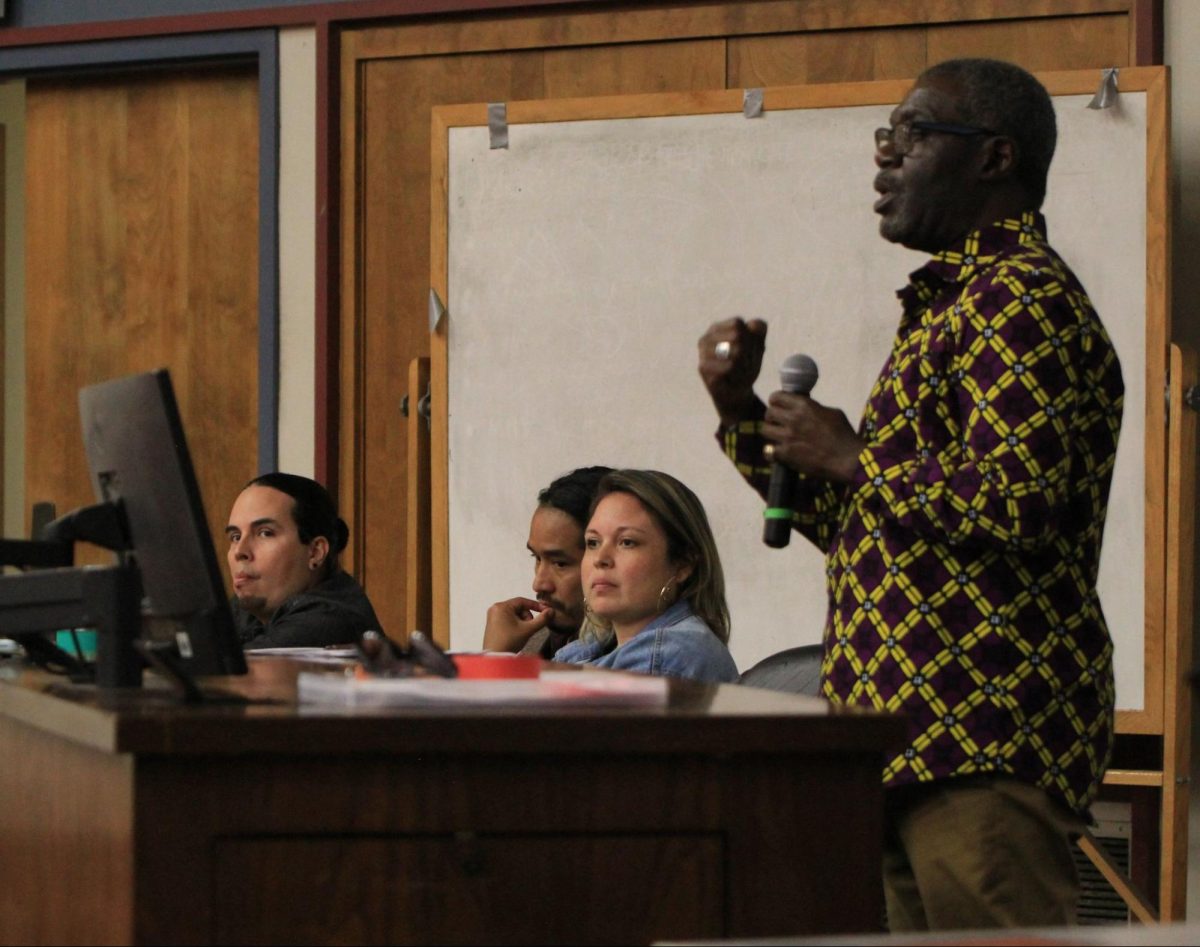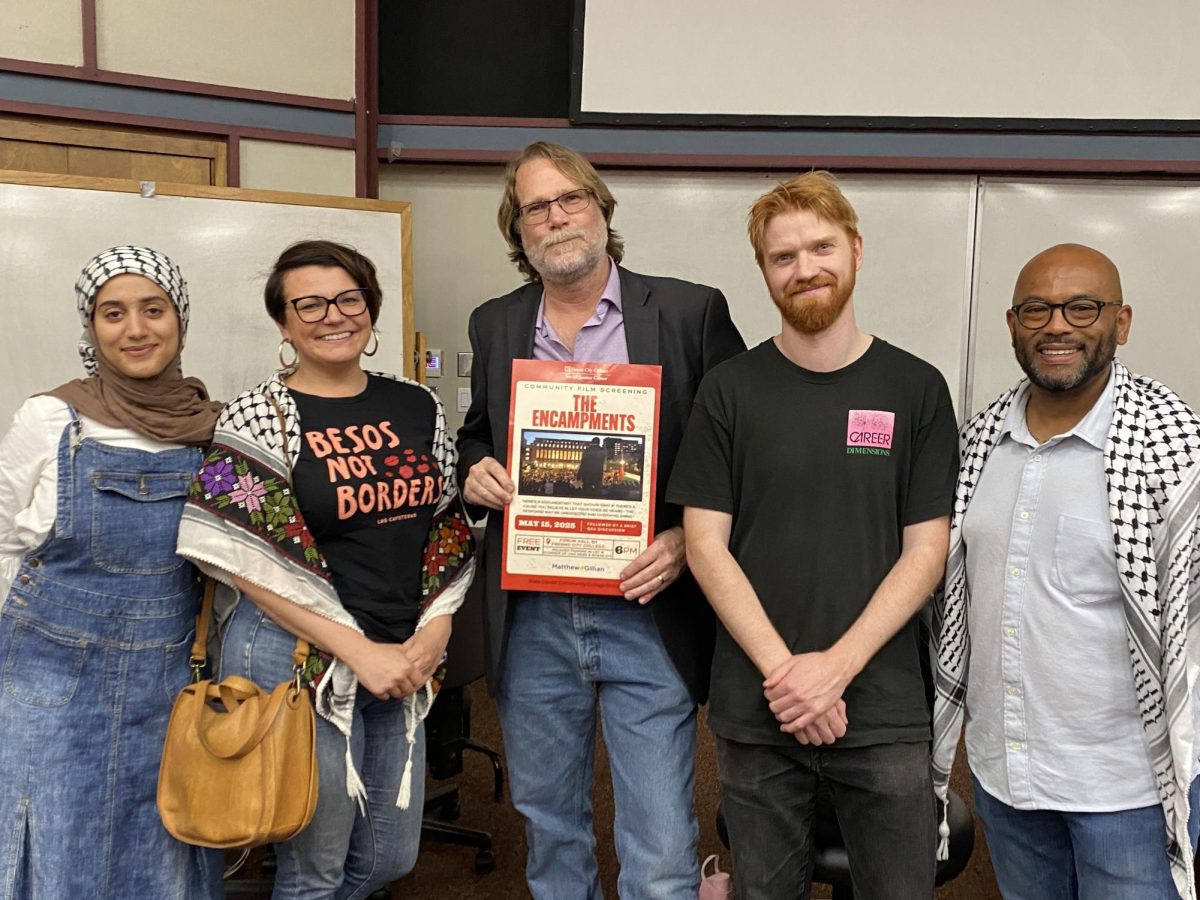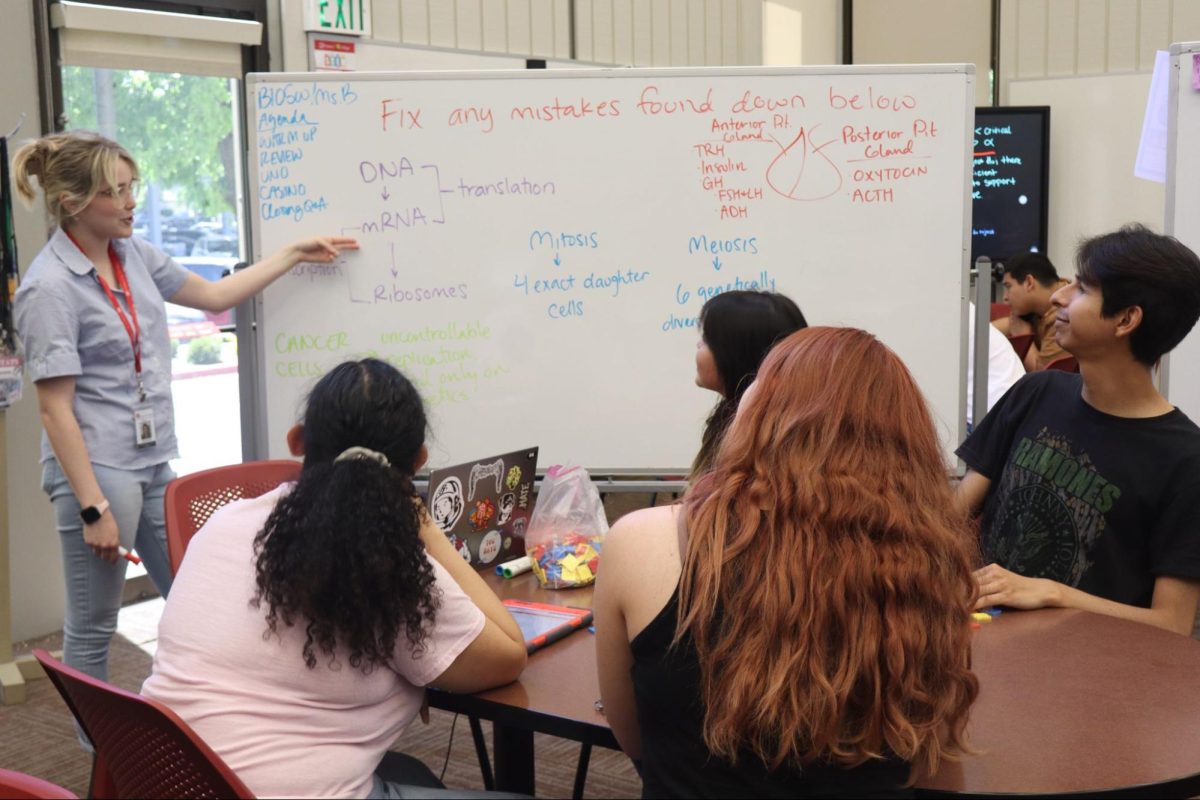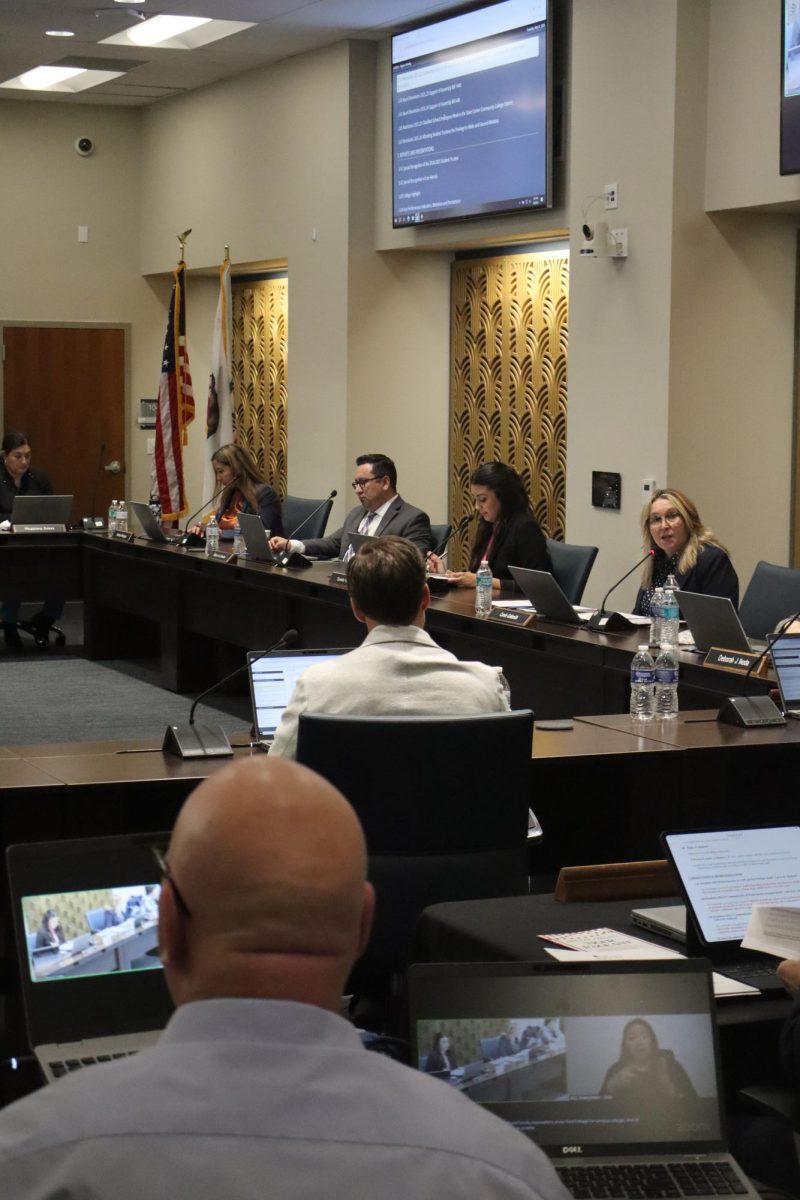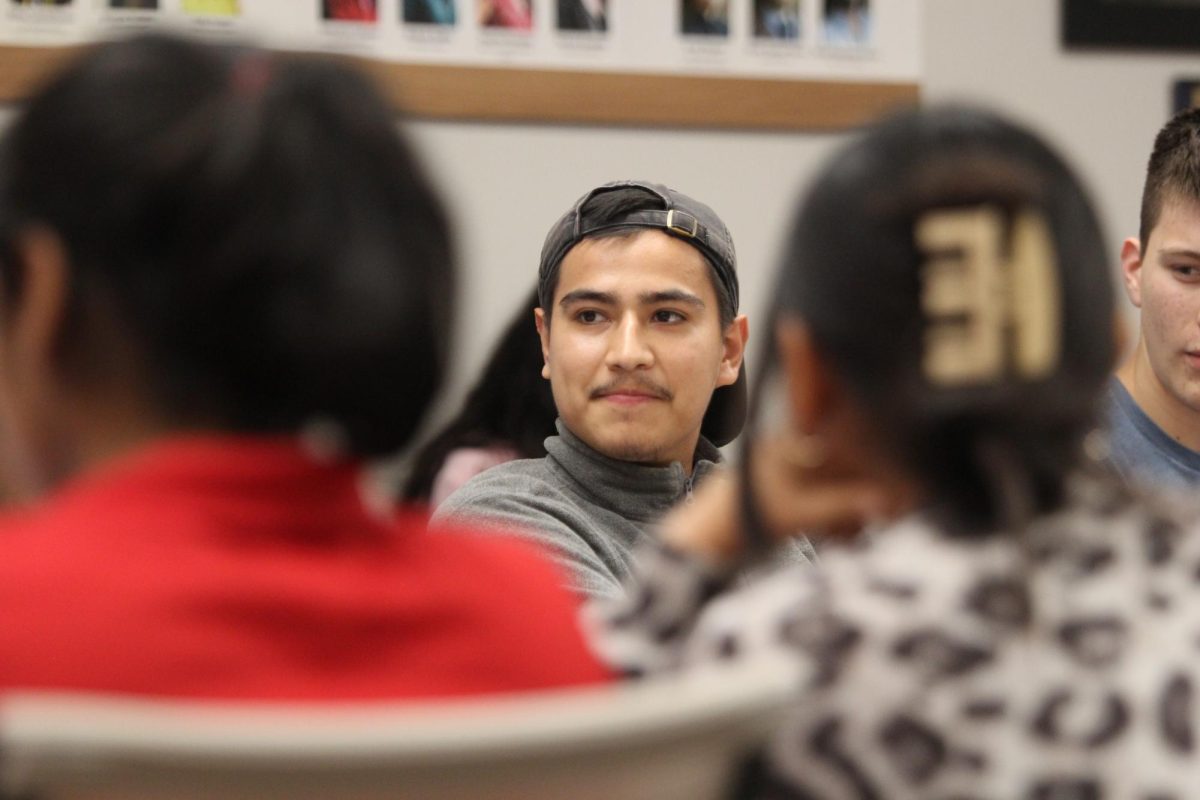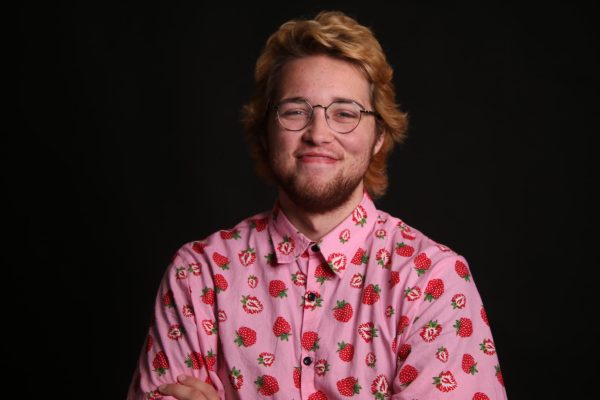Five of the seven full-time Cultural and Women’s Studies Department faculty spoke to students about the power of conjoined perspectives in a discussion panel on April 30, 2024.
Intro to Ethnic Studies is a 2-year-old, highly populated course that is, according to Victoria Benavides, in review by a “subcommittee of CSU faculty” who will determine if the course meets the newly mandated Area F requirement. If the course doesn’t meet the requirement, it is at risk of being shut down.
“This is a type of adversity that we won’t give up to. You as a student gotta wake up and say ‘we want ethnic studies’ again as they did 30 years ago. If you don’t raise your hand, if you don’t say something, this place is gonna go quick,” Auguste Kouadio said.
K-12 schools are also reconsidering their Ethnic Studies plan of action, considering how difficult it is to find qualified instructors who can manage under Area F. Kouadio calls this a “widespread effort to squish ethnic studies.”
Gena Gong confirmed that students actively enrolled in Intro to Ethnic Studies will still earn Area F credits, but the students next semester might not be so lucky.
To rally student interest and stress the importance of the ethnic studies curriculum, the five speakers discussed the harsh realities of a world without cultural incorporation in education.
During the first 10 minutes of the discussion, speaker Rigoberto Garcia juxtaposed the diversity that exists within Fresno against the manner in which public schools tend to organize different knowledge and perspectives.
Garcia lists statistics, citing that Fresno is home to over 70 diverse ethnic groups, and that Fresno students speak over 59 languages. However, most of these students have been tailored to only speak one language, usually English, all throughout school. Garcia himself only spoke Spanish when he joined education, and barely touches the language in class nowadays.
Garcia references subtractive schooling: an intangible process originally proposed by Angela Valenzuela where schools subtract resources from students. Kouadio and Erik Escovedo, the American Indian instructor, touched on the procedural subtraction of one’s culture in the U.S.
“Sometimes we can’t translate a word from our native language into the normative language. Sometimes it’s the opposite. So we get caught up in this idea of a ‘normative language,’ and sometimes, it makes us feel like your own culture and your own identity really doesn’t matter. But it does. ” Kouadio said.
“When it’s called upon, I do talk about whiteness in that way [compared to indigenous experience], but we have spaces for that already. It’s called U.S. History. I’ve been studying U.S. history, white history, since I was in first grade, we all have,” Escovedo said.
Victoria Benavides admitted that she does not “shy away” from talking about the dynamics of whiteness in tandem with Mexican heritage.
“What do you mark on the census when it says race, and what do you mark when it says ethnicity? How are those boxes confining? And so, I often will talk about whiteness amongst Mexican communities particularly, because in Chicanx studies, I didn’t learn about that,” Benavides said.
The discussion encouraged several questions from the audience of about 50, and each answer alluded to the complexity of each Cultural and Women’s Studies course. The speakers made it clear that Ethnic Studies exists to bring all communities together and learn alongside one another, not to fight against any one majority.
During the first 15 minutes of the discussion, Victoria Benavides was interviewed in the far corner of the building by a journalist from CBS47. The journalist took pictures of the speakers and students for about an hour before departing.
The discussion panel was the final on-campus event of Asian American Month, and it took place in Forum Hall 101 from 2:00 to 3:30 p.m.

